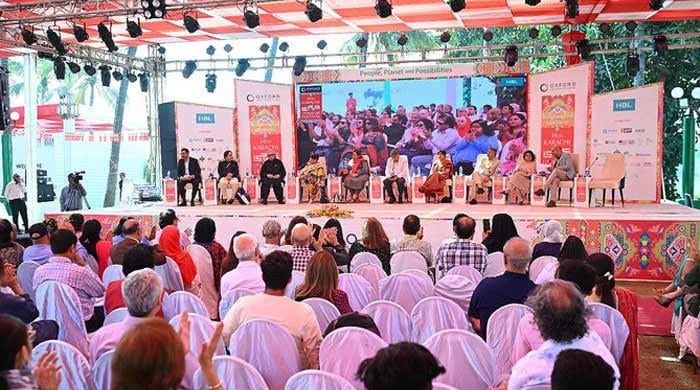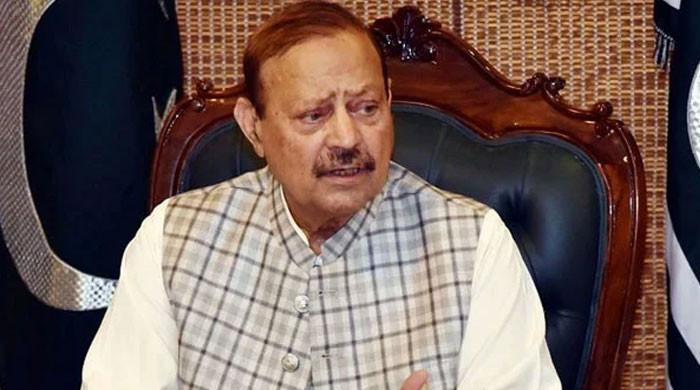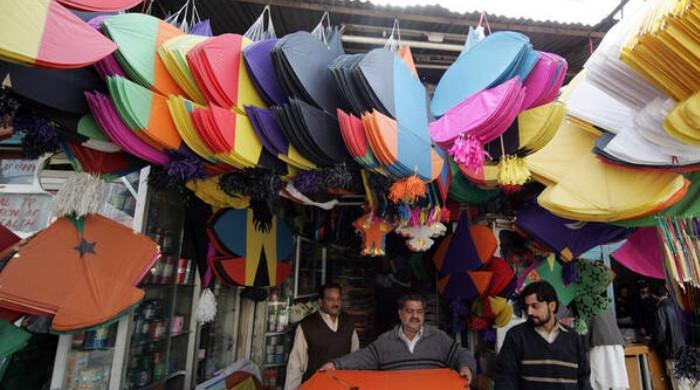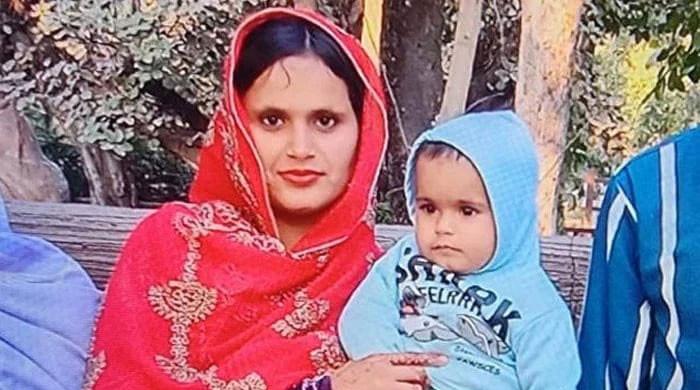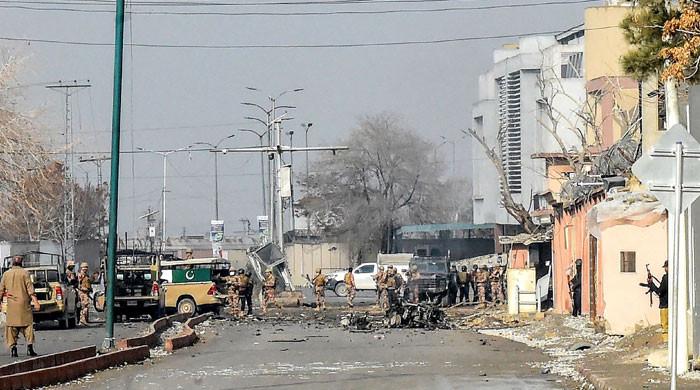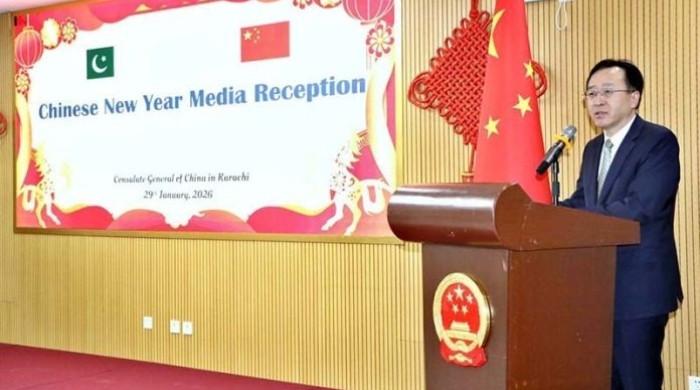Ukraine war: Pakistan abstains from voting on UN resolution against Russia
32 countries, including China and India, abstained from voting on resolution calling for an end to war
February 25, 2023
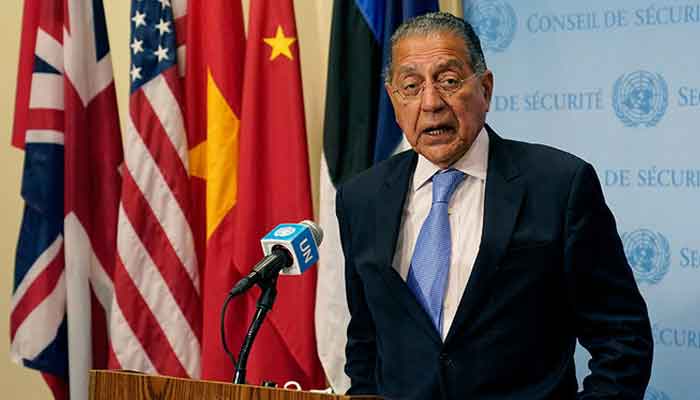
- 141 countries voted in support of resolution.
- Seven countries voted against UN resolution.
- Pakistan stresses need for resumption of negotiations.
UNITED NATIONS: Pakistan abstained from voting in the UN General Assembly (UNGA) on a resolution calling for Russia to withdraw its troops from Ukraine while stressing the need for resumption of negotiations between both countries for a peaceful solution to the raging conflict.
Sponsored by 75 countries, 141 members voted in support of the resolution, exceeding the two-thirds threshold needed to pass it. Seven members, Belarus, North Korea, Eritrea, Mali, Nicaragua, Russia and Syria voted against the resolution. 32 members abstained, including Pakistan, China, India, Iran and South Africa.
Speaking in explanation of his vote, Pakistan’s UN Ambassador Munir Akram said he had abstained on the resolution, which was drafted by Ukraine, despite efforts by the co-sponsors to moderate its tone, as some provisions were still inconsistent with Islamabad’s principled position.
On Wednesday, Ukrainian President Volodymyr Zelenskyy telephoned his Pakistani counterpart, Dr Arif Alvi, to seek Pakistan’s support.
Pakistan, he said, fully supports the resolution’s call for respect for the principle of sovereignty, sovereign equality and territorial integrity of states and non-acquisition of territory by the threat or use of force. States cannot be torn apart by the use of force, the Pakistani envoy said.
But, Ambassador Akram said, he regrets that these principles have not been universally applied and respected for instance in the situation of foreign occupation and the ongoing attempt at the illegal and forcible annexation of Jammu and Kashmir.
His reference to the situation in Indian Illegally Occupied Jammu and Kashmir (IIOJK) drew a response from a representative of India, but it was effectively countered by a Pakistani diplomat.
In his remarks, Ambassador Akram said Pakistan also endorses the resolutions and calls on member states and international organisations to redouble their support for diplomatic efforts to achieve a comprehensive, just and lasting peace in Ukraine.
“While the hostilities continue, there is an ever-present danger of a further military and geographical escalation of the war. There is thus an imminent threat to global peace and security.”
The Pakistani envoy said, “noting that while agreeing with and endorsing the principles and general provisions contained in the draft resolution, some provisions were not consistent with Pakistan’s principled position”.
“As a country that has seen and suffered the consequences of prolonged conflict in our neighbourhood, we attach the highest priority to the immediate cessation of hostilities and the resumption of dialogue to achieve a just and durable solution through direct or indirect negotiations, mediation or other peaceful means.”
“In this regard, we see an important role of the UN and the Secretary-General, inter alia, under Chapter VI and VIII of the UN Charter provisions (pacific settlement of disputes), for efforts aimed at de-escalation, renewed negotiations and sustained dialogue for a peaceful diplomatic solution,” he added.
“Pakistan continues to hope that, in a constructive approach, the parties will soon accept a mutual and early cessation of hostilities,” Ambassador Akram said, adding, “we also hope for the resumption of a dialogue for durable resolution of the conflict based on the principles of the UN Charter and past agreements, and bearing in mind the legitimate security interests of all States.”
By the terms of the 11-paragraph resolution, the UNGA reiterated its demand that Russia immediately, completely and unconditionally withdraw all of its military forces from the territory of Ukraine and called for a cessation of hostilities.
The assembly, through the resolution, urged member states to cooperate in the spirit of solidarity to address the global impacts of the war on food security, energy, finance, the environment and nuclear security and safety.
Underscoring that arrangements for a lasting peace should consider these factors, the assembly also called upon all nations to support the secretary-general in his efforts to address these impacts.
The assembly’s emergency session had met on Wednesday to begin debating the resolution, with the Assembly President, Csaba Korosi, saying that for a full year, the 193-member Assembly, the secretary-general, and the international community have been consistent and vocal in our call to end this war and to adhere to the UN Charter and international law.
The resolution also emphasised the need to ensure accountability for the most serious crimes under international law committed in Ukraine through independent national or international investigations and prosecutions to ensure justice for all victims and the prevention of future crimes.
The assembly on Thursday also rejected two amendments proposed by Belarus, an ally of Russia, with Pakistan also abstaining on those motions.
The first proposal would have altered several of the resolution’s provisions, and the second would have had the assembly’s call on member states to, among other things, refrain from sending weapons to the zone of conflict.




